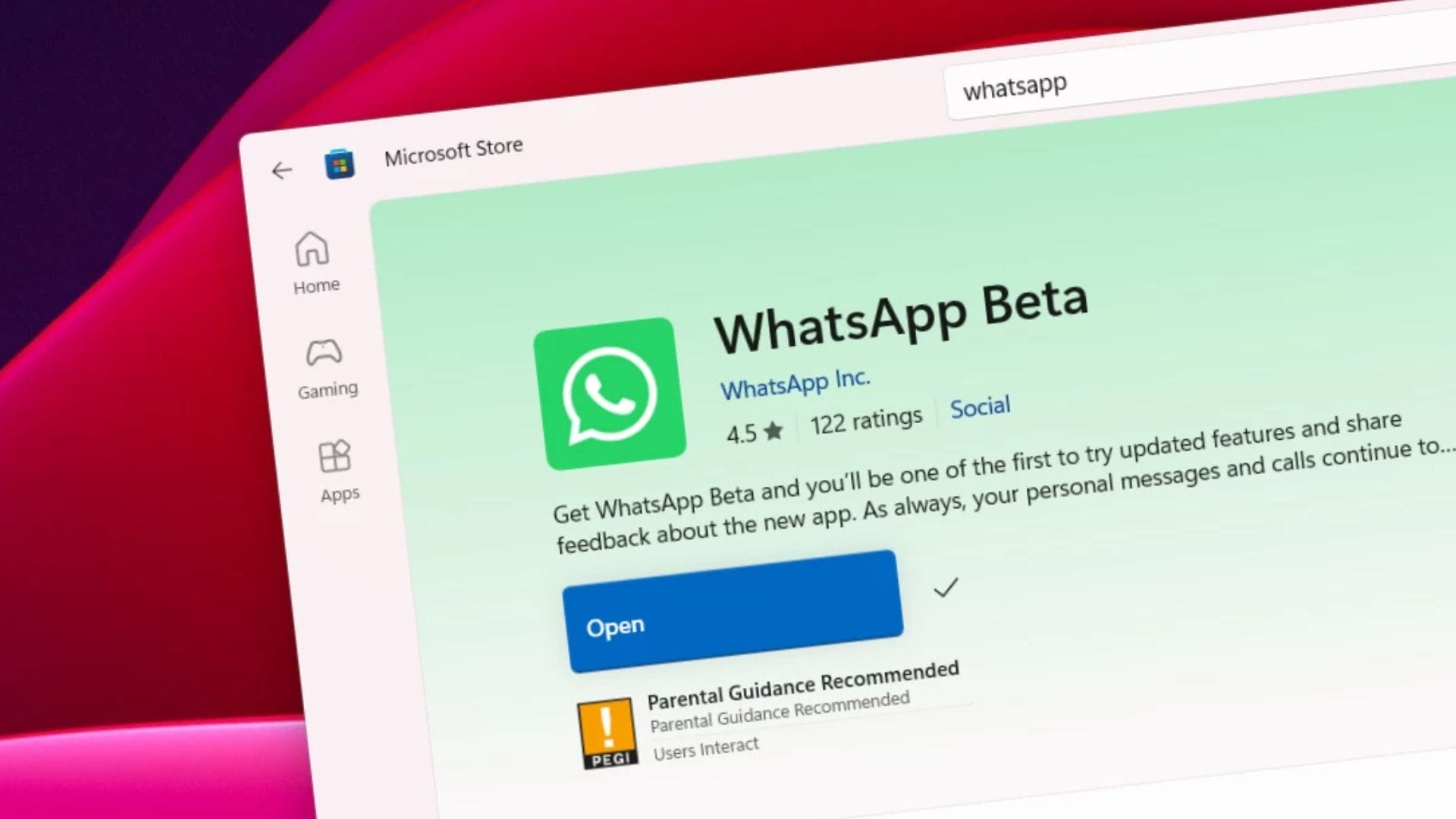WhatsApp replaces Windows native app with web-based version
Meta replaces WhatsApp’s Windows app with a web-based version, reducing performance and integration with Windows 11.

Meta has begun phasing out the native WhatsApp application for Windows in favour of a new web-based version, marking a significant shift in the messaging platform’s desktop strategy. The change is evident in the latest beta release of WhatsApp for Windows, which now runs as a web wrapper rather than a standalone native app.
In the update notes for the beta version, Meta states it has “updated how WhatsApp beta looks and works,” signalling a move away from the Windows UI integration that many users have grown accustomed to. Instead, the new version relies on Microsoft’s Edge WebView2 technology, essentially repackaging the existing WhatsApp web client into a desktop application. This enables Meta to unify its codebase and streamline development across platforms.
Reduced functionality and visual downgrade raise concerns
This transition represents more than just a cosmetic change. With the native Windows application no longer in use, the desktop version of WhatsApp now appears less integrated with Windows 11. A more generic, stripped-down interface is replacing the familiar aesthetics and seamless system notifications that users have come to appreciate. Additionally, the settings menu is notably more basic compared to the previous version, which may potentially frustrate users who prefer the richer user experience of the native app.
The update does bring some enhancements, however. The beta includes access to WhatsApp Channels and introduces expanded functionality for the Status and Communities features. While these additions aim to bring the desktop app closer in line with mobile capabilities, the overall user experience may still feel like a downgrade for those used to the native Windows look and feel.
Performance is another area of concern. The web wrapper version of WhatsApp typically consumes more RAM than its native predecessor, which may impact users running multiple applications simultaneously. Ironically, WhatsApp itself has previously stated that native apps for Windows and Mac offer “increased performance and reliability, more ways to collaborate, and features to improve your productivity.”
A strategic move for development efficiency
The shift to a web-based model is a strategic move by Meta, aimed at simplifying app maintenance and development. By leveraging Microsoft’s WebView2 framework, Meta can avoid the added burden of developing and maintaining a native application for Windows, focusing instead on enhancing the web version that now powers the desktop app.
This approach mirrors the recent launch of WhatsApp’s first native iPad app, suggesting Meta is making selective decisions about where to invest in native applications. While Apple users are seeing new platform-specific versions, Windows users are instead being steered toward a more generic, browser-based experience.
WhatsApp originally launched its native Windows app just a few years ago, enabling users to stay connected without relying on a direct connection to their mobile phones. That functionality remains, but the polished, integrated feel of the original app is now being replaced by something more utilitarian.
For long-time Windows users, this marks a notable regression in user experience. Whether Meta plans to reinvest in a new native Windows app down the line remains uncertain.
















